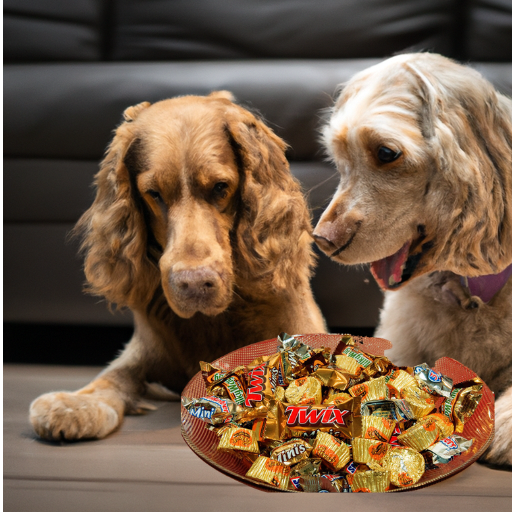Chocolate is a delicious treat loved by many, but when it comes to dogs, it can pose a significant risk.
The title of this article may be daunting, but the fact is dogs can’t eat chocolate.
You may have heard that chocolate is toxic to dogs, but why is it dangerous?
The Toxic Components of Chocolate
Chocolate contains two substances that are harmful to dogs: caffeine and theobromine. These compounds belong to a group of chemicals called methylxanthines, which affect the central nervous system and cardiovascular system. While humans can metabolize these substances relatively easily, dogs have a much harder time breaking them down.
Theobromine is the primary concern. It stimulates the dog’s central nervous system, leading to increased heart rate, muscle tremors, and even seizures. In largee quantities, it can cause life-threatening conditions such as internal bleeding, heart arrhythmias, and, in extreme cases, death.
Factors Affecting Chocolate Toxicity
The degree of toxicity depends on several factors, including the type of chocolate consumed, the amount ingested, and the size and sensitivity of the dog. Dark chocolate, cocoa powder, and baking chocolate contain higher levels of theobromine compared to milk chocolate.
Some people may think a bigger dog can handle chocolate, but it is not worth the risk.
Symptoms of Chocolate Poisoning in Dogs
If your dog has ingested chocolate, it’s crucial to recognize the symptoms of chocolate poisoning. Symptoms can appear within a few hours and may include:
- Vomiting
- Diarrhea
- Restlessness or hyperactivity
- Increased thirst
- Rapid breathing
- Elevated heart rate
- Muscle tremors or seizures
- Collapse or loss of consciousness
These symptoms can indicate a serious medical emergency, and immediate veterinary attention is necessary.
My Dog Ate Chocolate But Is Acting Fine
If you suspect your dog has consumed chocolate, don’t wait for symptoms to appear—contact your veterinarian right away.
Depending on the type of chocolate consumed, it could be ok. However, you don’t want to take chances. Unfortunately dogs cannot tell us everything they may be feeling.
Time is of the essence when it comes to chocolate toxicity. The veterinarian may induce vomiting or administer activated charcoal to prevent further absorption of the toxins.
Treatment and Prevention
Treatment for chocolate poisoning may also involve supportive care, such as intravenous fluids and medications to stabilize the dog’s heart rate and control seizures if they occur. The prognosis depends on the amount and type of chocolate ingested, as well as how quickly treatment is sought.
Prevention is undoubtedly the best approach. Ensure that chocolate and other potentially harmful foods are stored securely out of your dog’s reach. Educate family members and visitors about the dangers of chocolate for dogs to avoid accidental ingestion.
Remember, prevention is the key. By keeping chocolate out of your dog’s reach and educating those around you about the dangers, you can ensure your beloved pet stays safe and healthy. Instead, opt for dog-friendly treats and always consult with your veterinarian regarding suitable snacks and dietary choices for your furry friend.


